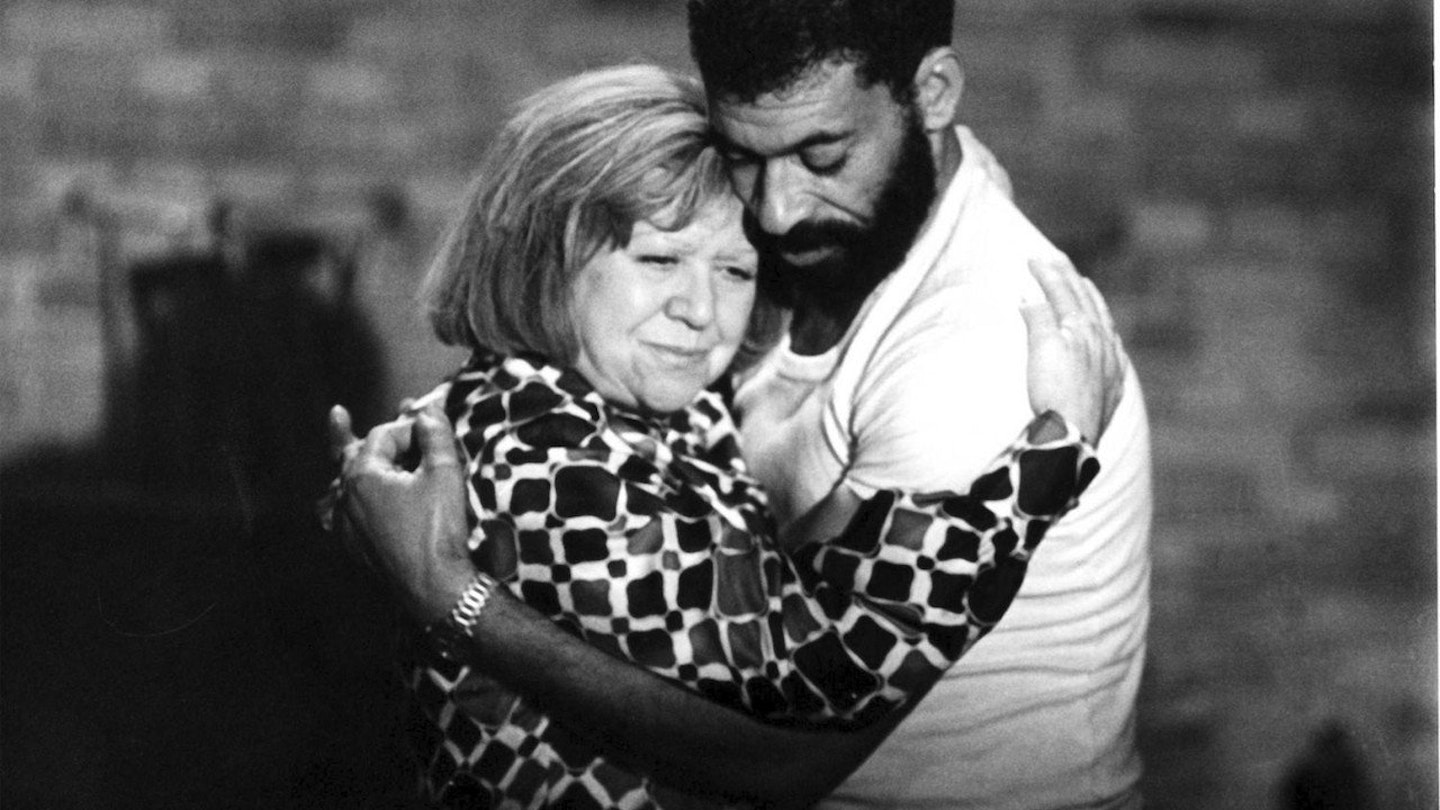Rainer Werner Fassbinder trailed the story of Fear Eats the Soul in an anecdote told by the chambermaid in The American Soldier. It was based on a newspaper report, but the influence of Douglas Sirk's All That Heaven Allows is readily apparent, both in terms of narrative structure and visual style. As so often before, Fassbinder's use of angle, light and colour recalls that of his mentor. He also makes typically telling use of mirrors. The scenes in which Emmi and Ali stare at themselves in the glass intentionally reflect each other, as the ex-Nazi surrenders to her love for a Moroccan and the belittled man struggles to reconcile his beloved wife with her muddle petit bourgeois values. But the hospital mirror shot is even more pertinent, as it suggests the inescapability of reality and casts doubt on the couple's future.
For all its Sirkian influence, the film also borrows Bertholt Brecht's idea of typage in order to universalise the attitudes of those opposed to Emmi and Ali's relationship. Her children, neighbours, co-workers and even her grocer abandon her on her wedding day and Fassbinder can't resist setting the reception in Hitler's favourite Munich restaurant to emphasise the iniquity of their prejudice. Ironically, only the forces of repression and exploitation (the cops and the capitalist landlord) are prepared to live and let live.
Yet, once the pair return from their holiday, they are grudgingly accepted - albeit from selfish individual motives rather than any sense of tolerance. Emmi's offspring require her to babysit, the neighbours want to use her basement, the grocer can't afford to lose her custom in the face of supermarket competition, and the cleaners shift their ire on to their new Yugoslav workmate.
This is a highly emotive melodrama. But while Fassbinder is content for audiences to empathise with his victimised lovers, he also wants them to recognise that the social, economic and moral factors that brought Emmi and Ali together will ultimately drive them apart.
